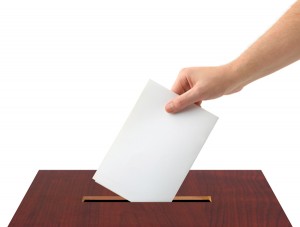© 2018 by Steve Brawner Communications, Inc.
Does “the middle” equal “mushy”?
The concept came up in an interview with Rep. Clarke Tucker, D-Little Rock, by the New York Times. The newspaper featured Tucker in a story about national Democrats favoring moderate candidates in Republican-leaning districts like central Arkansas’ 2nd.
It’s represented by Republican Rep. French Hill, himself not a fire-breather, but national and local Democrats think they have a shot at winning it. So they recruited Tucker and have backed him financially.
Tucker is running against three other Democrats in the May 22 primary: Paul Spencer, Gwen Combs and Jonathan Dunkley. All are more liberal, and all support a “Medicare for All” system of government-funded health care. Tucker, who has made health care a signature issue after beating cancer, instead favors strengthening the Affordable Care Act, otherwise known as Obamacare, while allowing Americans voluntarily to buy into Medicare.
Can a moderate be passionate?
There’s an assumption in American politics that incremental pragmatists like Tucker lack the passion and intensity of big-change-seekers like Spencer, Combs and Dunkley. Some activists therefore see moderates as too compromising – too go-along-to-get-along, and therefore not to be trusted. Some Democrats refer to their centrist members as “DINOs” (Democrats In Name Only), while centrist Republicans are called “RINOs” by many in their own party. These are not compliments.
Here’s what Tucker said in the interview: “There’s, in my view, an overly simplistic characterization of Democrats now into one of two camps: either centrist and unenthusiastic or liberal and passionate. I have a lot of passion about the issues that I really care about. At the same time, I realize that making any progress is better than making no progress at all.”
Can a moderate be passionate? Certainly. But the larger question these days is, can a moderate be a moderate? American politics previously was characterized by a bell curve – many in the middle, fewer on the ends. These days, it looks like a trough. In Congress, Democrats have moved left and Republicans have moved right, making it difficult for anybody to meet in the middle. The result: government gridlock. In the GOP-dominated Arkansas Legislature, Tucker has worked with Republicans because he’s had no choice. In Congress, he’d have no choice but to pick sides.
That change in Congress has reflected cultural and political divides in society. America has become a more tribal place in recent years, fueled by partisan media outlets and segregating social media tools like Facebook. Elected officials know who votes, and in the upcoming May 22 primaries in Arkansas, a higher percentage of voters will be strongly liberal or conservative.
In other words, typically the most passionate ones.
Unite America seeks independent candidates
So here’s another question: Can the center make a comeback? There have been some rumblings. The group No Labels has fostered a Problem Solvers Caucus of 48 House members evenly divided between Republicans and Democrats trying to reach across the divide. Its influence has been limited so far, and none of Arkansas’ representatives are members. In the Senate, a “Common Sense Coalition” of about 25 senators helped reopen the government after a shutdown earlier this year, and it also offered a bill regarding the so-called “Dreamers” brought to America illegally as children. It’s not clear if it will last. Arkansas’ Sens. Tom Cotton and John Boozman haven’t been involved.
Meanwhile, a new group called Unite America is trying to elect centrist independents in closely divided legislatures such as the U.S. Senate, currently 51-49. The thinking is 3-5 independents could vote as a bloc, using their swing vote to force Republicans and Democrats to the middle and break the gridlock.
It faces an uphill battle. The levers of American politics favor the two parties even though they aren’t mentioned in the Constitution. It’s especially difficult for independents to raise money.
But there is this news: In Colorado, the group’s five state legislative candidates raised almost $130,000 in this year’s first quarter, while their 11 Republican and Democratic opponents raised less than $47,000.
It should be pointed out that the incumbents in those races were barred from raising money because they were meeting in session. Still, the imbalance in favor of independents is noteworthy. Independents rarely raise money unless they are rich and self-fund their campaigns.
What’s fueling the interest? Maybe a little passion?
